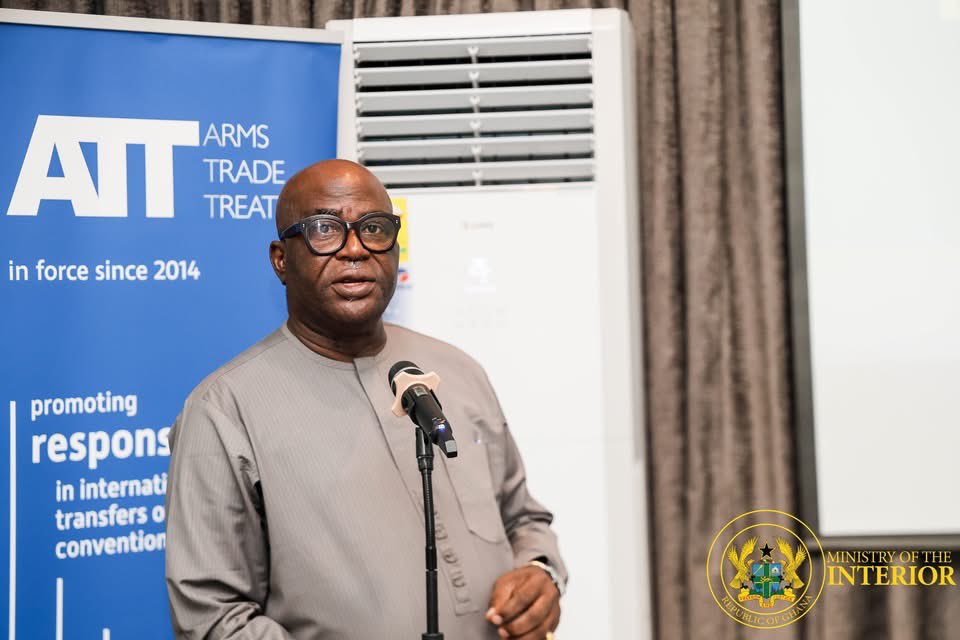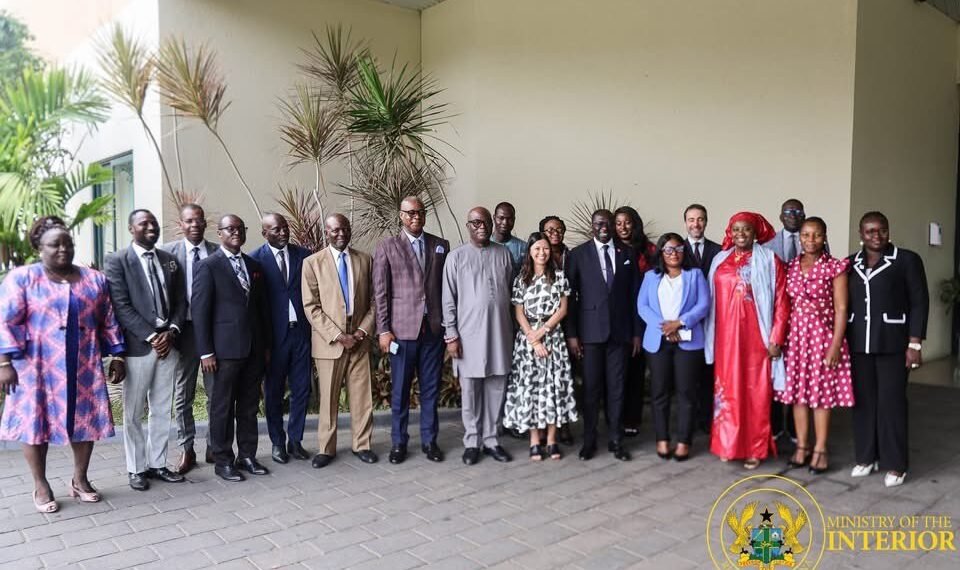Ghana has commenced a five-day regional workshop in Accra focused on strengthening implementation of the Arms Trade Treaty (ATT), gathering security experts and regional delegates to reinforce the continent’s commitment to responsible arms control.
The initiative underscores the government’s ongoing agenda to promote peace, transparency, and accountability in West Africa’s defense landscape.
“We are proud to be among the early signatories of the ATT, and we continue to take practical steps to domesticate its provisions”
Hon. Ebenezer Okletey Terlabi, Deputy Minister for the Interior
Deputy Minister for the Interior, Hon. Ebenezer Okletey Terlabi, opened the workshop with a strong message of dedication to ATT obligations and a broader vision of regional cooperation.
He reiterated that Ghana has not only been a signatory to the Treaty since its inception but continues to take bold steps in domesticating its provisions.
Terlabi emphasized that Ghana’s approach to arms control is grounded in “preventing human suffering” and ensuring a culture of transparency and accountability within the region’s arms trade.
“The true measure of this initiative will not be in the discussions we hold this week, but in the quality of the action that follows”
Hon. Ebenezer Okletey Terlabi, Deputy Minister for the Interior

In addressing the workshop participants, Terlabi encouraged an immersive and reflective approach to the sessions, calling on stakeholders to question norms and explore pragmatic paths for implementation.
He called for regional solidarity in combating the illegal arms trade, adding that ATT compliance would only succeed through intentional cooperation, local capacity building, and institutional reform.
Support and Collaboration
The Head of the Arms Trade Treaty Secretariat, Ms. Carina Solmirano, hailed Ghana’s leadership in convening the workshop and described it as a critical step toward deepening regional ATT understanding and action.
“You are not just participants; you are representatives of the ATT in your various countries,” she told the gathering, urging delegates to not only absorb the Treaty’s provisions but to serve as ambassadors of its goals back home.
Solmirano noted that the workshop is part of a broader global push to enhance ATT implementation and promote responsible trade in conventional arms, particularly in regions vulnerable to “political instability and armed conflict.”
The workshop aims to empower participants to become trainers who can replicate the knowledge and methodologies across multiple national contexts. The agenda blends technical content with soft skills development to ensure that participants can effectively disseminate their insights at the end.
Sessions include in-depth analysis of the Treaty’s foundational objectives, practical strategies for national-level implementation, and capacity-building modules on communication, negotiation, and active listening.

Organizers believe this multi-dimensional approach will significantly strengthen the region’s preparedness in tracking, regulating, and reporting arms transactions.
Advancing Security
As regional conflicts persist and illicit arms continue to fuel violence, the significance of the workshop transcends bureaucratic engagement. It represents a tangible move towards institutionalizing preventive frameworks within West Africa’s governance structures.
Ghana, under President Mahama’s leadership, is increasingly positioning itself as a hub for peace-building and multilateral cooperation, especially on security-related matters.
Stakeholders believe the success of the ATT depends not only on ratification but on the lived commitment of member states to transform principles into everyday governance practice.
With Ghana taking the lead in hosting such a workshop, expectations are high that the resulting outcomes will have ripple effects across the subregion.
The five-day programme is expected to conclude with a roadmap for continuous collaboration among participating countries and a plan to evaluate domestic implementation efforts.
READ MORE: Ghana’s Cocoa Sector in Crisis Over $263M Loan Outcome




















